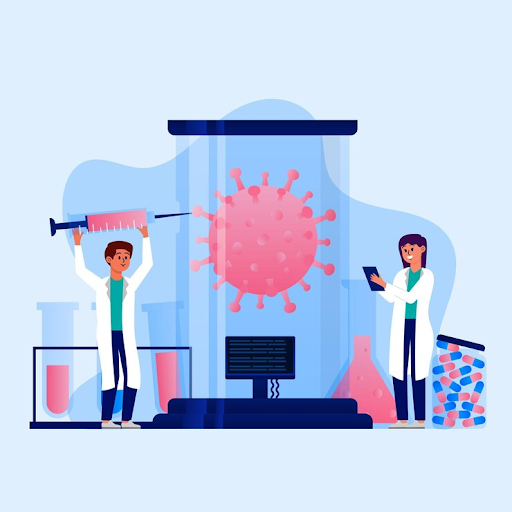Antibody discovery has revolutionized the field of medicine, particularly in cancer therapy. These powerful biomolecules are now integral to various treatment strategies, offering specificity and efficacy in targeting diseases. This blog will explore the applications of antibody discovery, focusing on its pivotal role in cancer therapy and its expanding reach into other therapeutic areas.
Antibody Discovery in Cancer Therapy
1. Monoclonal Antibodies:
The advent of monoclonal antibodies (mAbs) has transformed oncology. These lab-engineered antibodies are designed to recognize and bind to specific antigens present on cancer cells, leading to targeted therapies. For example, trastuzumab (Herceptin) is a well-known mAb used in HER2-positive breast cancer treatment, improving patient survival rates significantly.
2. Mechanisms of Action:
Direct Tumor Targeting: mAbs can directly inhibit tumor growth by blocking the signalling pathways that promote cell proliferation.
Immune System Engagement: Many therapeutic antibodies enhance the body’s immune response against tumours. For instance, rituximab targets CD20 on B-cell non-Hodgkin lymphoma, marking them for destruction by the immune system.
Antibody-Drug Conjugates (ADCs): ADCs combine the targeting ability of antibodies with potent cytotoxic agents. By delivering chemotherapy directly to cancer cells, ADCs minimize damage to healthy tissues. Examples like ado-trastuzumab emtansine showcase the effectiveness of this approach.
3. Checkpoint Inhibitors:
Immune checkpoint inhibitors, such as pembrolizumab (Keytruda) and nivolumab (Opdivo), are monoclonal antibodies that block proteins that inhibit T-cell activation. By releasing the brakes on the immune system, these therapies enhance the body’s ability to fight cancer.
Expanding Beyond Cancer
While antibody discovery has made significant strides in oncology, its applications extend far beyond cancer therapy.
1. Autoimmune Diseases:
Therapeutic antibodies are increasingly being used to manage autoimmune disorders. By targeting specific cytokines or immune cells, these antibodies can modulate the immune response. For instance, adalimumab (Humira) treats conditions like rheumatoid arthritis and Crohn’s disease by inhibiting tumor necrosis factor-alpha (TNF-alpha), a key player in inflammation.
2. Infectious Diseases:
Antibodies play a crucial role in combating infectious diseases. Convalescent plasma therapy, which utilizes antibodies from recovered patients, has been employed in treating infections such as COVID-19. Additionally, monoclonal antibodies like casirivimab and imdevimab have been developed specifically to neutralize SARS-CoV-2, providing targeted treatment options during pandemics.
3. Cardiovascular Diseases:
Novel antibody therapies are being explored for cardiovascular conditions. For example, antibodies targeting PCSK9 are used to lower LDL cholesterol levels, significantly reducing the risk of cardiovascular events.
4. Neurological Disorders:
The potential of antibodies in neurology is emerging. Therapies targeting beta-amyloid plaques, such as aducanumab for Alzheimer’s disease, are in various stages of development and hold promise for addressing neurodegenerative diseases.
Innovations in Antibody Discovery
The field of antibody discovery continues to innovate, leading to more effective therapies across various domains.
1. Next-Generation Sequencing:
Advances in sequencing technologies are enhancing the speed and accuracy of antibody discovery. This allows researchers to identify and characterize high-affinity antibodies from large libraries rapidly.
2. Machine Learning and AI:
Artificial intelligence is increasingly being employed to predict antibody-antigen interactions and optimize antibody design. This technology accelerates the development process and increases the likelihood of successful outcomes.
3. Personalized Medicine:
The integration of biomarker identification with antibody therapies enables personalized treatment approaches. By tailoring therapies to individual patients based on their specific disease characteristics, healthcare providers can enhance treatment efficacy and reduce adverse effects.
Conclusion
The applications of antibody discovery in cancer therapy and beyond underscore the transformative impact of these therapeutic agents on modern medicine. From targeted cancer treatments to innovative therapies for autoimmune diseases, infectious diseases, and neurological disorders, the potential of antibodies continues to expand.
At Genext Genomics, we are dedicated to advancing antibody discovery and development, harnessing the latest technologies and research to deliver innovative solutions that address the unmet medical needs of patients. As we look to the future, we remain committed to being at the forefront of therapeutic antibody research, driving progress in healthcare and improving patient outcomes.



